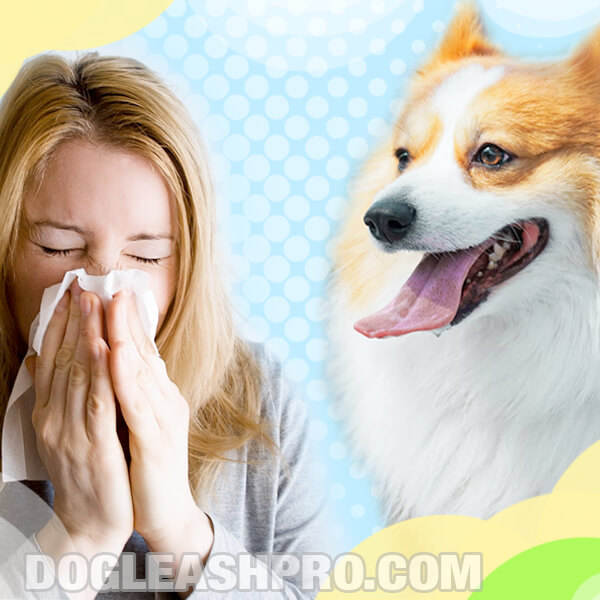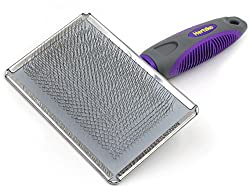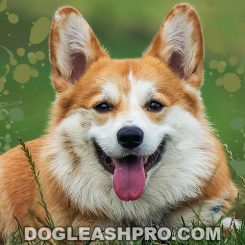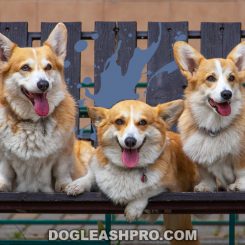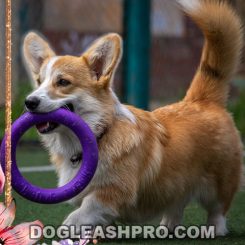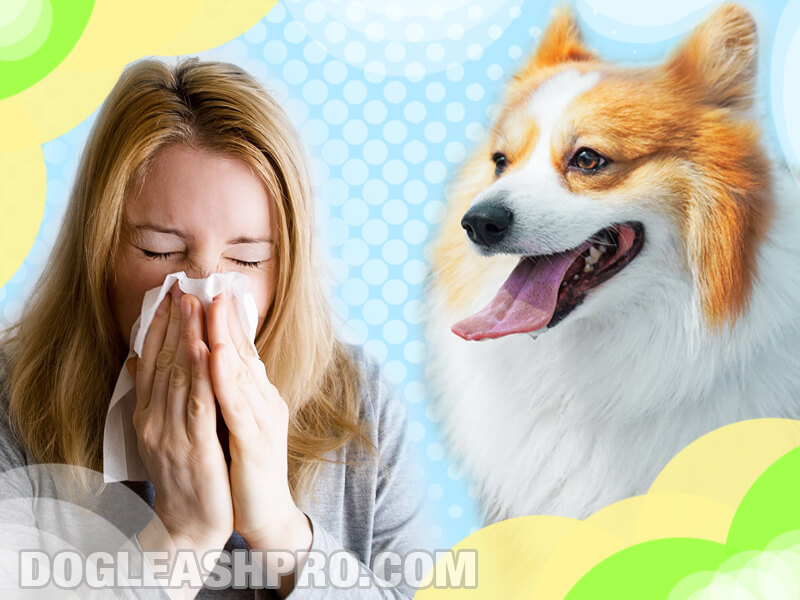
If you have dog allergies or are considering owning a Corgi, you may be wondering, “Are Corgis hypoallergenic?” Corgis are family-friendly dogs that are lovable, loyal, and extremely intelligent. While their adorable faces and bodies may melt your heart, could their fur, dander, and saliva cause you allergic and asthmatic reactions? Here’s the quick answer first.
Are Corgis hypoallergenic? No, Corgis are not hypoallergenic dogs. If you have dog allergies or are sensitive to a dog’s dander (skin cells), fur, saliva, dust, or pollen, then you may want to reconsider owning a Corgi. That’s because Corgis are heavy shedders and their fur can carry particles or stimuli from the outdoors that can trigger people with allergies.
In this article, we’ll discuss in detail why these adorable and charming dogs are not hypoallergenic, whether fluffy or Long Haired Corgis shed more than standard Corgis, how much Corgis shed, and what you can do to control the shedding. Let’s get started!
Table of Contents
What does hypoallergenic mean?

To fully understand why Corgis are not hypoallergenic dogs, let’s get a complete understanding of what hypoallergenic means.
The term, “hypoallergenic” was first used in the 1950s by many cosmetic companies to inform consumers with hypersensitive skin that their makeup or beauty products were safe to use and were less likely to cause an allergic reaction.
So what exactly does hypoallergenic really mean?
Unfortunately, the answer is not so straightforward. This term is controversial. According to the Food and Drug Administration (FDA), “There are no Federal standards or definitions that govern the use of the term ‘hypoallergenic.’ The term means whatever a particular company wants it to mean.”
This is why you need to be extra careful when you see products like soaps, laundry detergents, cosmetics, clothing, blankets, toys, vacuum cleaners, and mattresses labeled as “hypoallergic.”
Nowadays, this buzzword has been used to label dogs too! We will discuss this next.
What does hypoallergenic dog mean?
Did you know that there are over 80 million dog owners in the U.S.? This means that about 25% of the U.S. population has dogs in their homes.
Another fact we found interesting is that 10% of the U.S. population suffers from dog allergies.
People with dog allergies are sensitive to a dog’s fur or coat, dander (skin cells or microscopic and tiny flecks of skin shed by dogs), and saliva. The dog’s saliva, dander, and even urine contain IgE-binding proteins that cause dog allergens.
We are told that if we have dog allergies that we should search for hypoallergenic dogs since these types of dog breeds are less likely to trigger our allergies. But are there dogs that are 100% hypoallergenic?
Unfortunately, the answer is no. According to the American Kennel Club (AKC), a completely hypoallergenic dog does not exist. You won’t find a dog that is truly 100% hypoallergenic.
However, there are some dogs that have minimally shedding coats throughout the year which means they shed less dander as well.
You see, when the dogs’ dander falls out of their skin, it gets trapped or attached to the dog’s hair since the hair doesn’t shed as much. The dander is what causes most dog allergies in people.
Dog breeds that do not shed much are the answer to most dog lovers with dog allergies or allergen sensitivities. Scroll to the bottom of this article to see a list of 19 dog breeds that are considered “hypoallergenic.” Pet owners are able to enjoy having a canine companion even though they suffer from allergies.
If you have dog allergies, try the following:
- Routine grooming.
- Clean your dog’s bed frequently.
- Avoid letting your pooch sleep on your bed.
- Vacuum your carpet, rug, drapes, and sofa often since these household items can trap your dog’s fur and dander.
Handy Hint: In between grooming appointments and visits, there are several things you can do at home to keep your four-legged friends looking clean and sharp. Check out Dog Grooming For Beginners At Home – Dos and Don’ts to learn more!
What makes a dog hypoallergenic?
As we can see, a hypoallergenic dog is one that does not shed a lot. This is why dog owners with pet allergies prefer owning dogs such as Poodles (Doodles), Schnauzer, and Bichon Frise since these canine breeds have a low shedding coat.
While it may seem like the dog’s fur is the main culprit that causes allergy problems for those sensitive to dog allergies, the real culprit is actually the dog’s dander.
It’s important to note that the dog’s fur is only a third of the problem. Some pet owners may not have the time or do not want to groom their precious pooch regularly.
Not only do dogs shed their fur, but they also shed flecks of dead skin too. This dead skin is known as dander and it is usually what triggers dog allergies in people. You can find the dog’s dander on your carpet, floor, or even in the air.
When the dander is in the air, there’s a high chance that the pet owners will inhale it, and once inhaled, the dander can enter into their mucous membranes, including their nose and lungs.
Unsurprisingly, the dog’s hair can also carry particles, stimuli such as dander, saliva, dirt, dust, pollen, and other allergens from the outdoors that can trigger one’s allergy.
As we can see, dog breeds with minimally shedding coats will shed less dander.
Some that are extremely sensitive to dog allergies may also want to avoid slobbery dog breeds such as Saint Bernard, Bloodhound, Bulldog, Newfoundland, Boxer, Great Dane, and Bullmastiff since these dogs drool the most and saliva is another trigger for those with dog allergies.
Are Corgis hypoallergenic?

If you love Corgis but have severe dog allergies, you may be wondering, “Is a Corgi hypoallergenic?” The truth is that Corgis are not hypoallergenic.
There are two varieties of Corgis, the Pembroke Welsh Corgi and the Cardigan Welsh Corgi.
Let’s briefly go over the difference between the two and see why they are not hypoallergenic dogs.
Pembroke Welsh Corgi vs Cardigan Welsh Corgi
The one main difference between Pembroke Welsh Corgi and Cardigan Welsh Corgi is that the Pembroke Welsh Corgi usually has docked tail while the Cardigan Welsh Corgi has a bushy and fluffy tail that looks similar to the texture of a fox’s tail.
They are both charming with their beautiful big smiles, cheerful eyes, fluffy behinds, small elongated bodies, and short legs.
Both the Cardigan Welsh Corgi and the Pembroke Welsh Corgi are very social so they get along with children and other pets in the house.
Originated in Wales, a country in southwest Great Britain, this small dog breed was popularized by Queen Elizabeth II. As a matter of fact, Queen Elizabeth II owned more than 30 Corgi dogs in her lifetime!
As of 2020, the Pembroke Welsh Corgis were ranked the 11th most popular dog breed in the U.S according to the American Kennel Club (AKC) and the Cardigan Welsh Corgi were ranked the 66th most popular dog breed in the United States.
DON’T MISS: Fluffy Corgi (Complete Guide)
Do Corgis shed a lot?
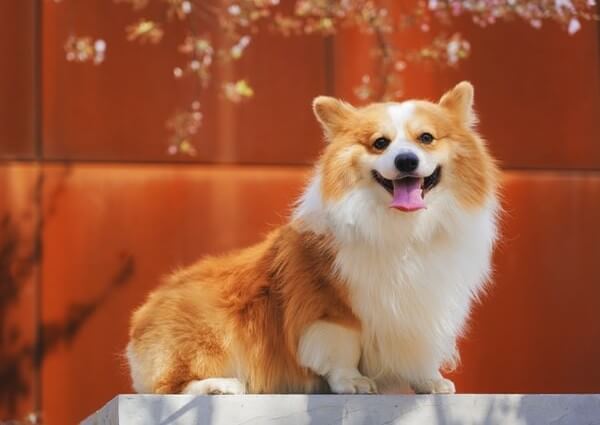
Yes, Corgis do shed a lot.
Corgis are considered heavy shedders and shed excessively. Corgi owners will find their furry friends’ hair everywhere in the house: inside your closet, on furniture, carpet, clothing, pajamas, bed, sofa, and even on your laptop or keyboard.
While you can see the dog’s fur, you most likely won’t see the dander. Both the fur and the dander are what triggers pet allergies in people as discussed above.
WANT MORE INFORMATION? Check out Do Corgis Shed? 15 Tips to Manage Corgi Shedding!
So, do Corgis cause allergies?
Yes, Corgis can trigger dog allergies in people. As discussed above, the dog’s dander, saliva, fur, and even urine can trigger allergic reactions in people. Let’s go over each of them.
Owners sensitive to dander can experience both allergic and asthmatic symptoms
Once released from the skin, the light dander can fly in the air, and pet owners can easily inhale it. Once inhaled, those that are sensitive to the Corgi’s dander may experience the following allergic symptoms:
- Sneezing.
- Running nose.
- Congestion.
- Wheezing.
- Postnasal drip.
- Itchy eyes.
- Watery eyes.
People sensitive to the dander may also experience asthmatic symptoms too. They include:
- Difficulty breathing.
- Shortness of breath.
- Tightness in the chest.
- Wheezing.
Some may have allergic dermatitis from getting in contact with the Corgi’s saliva
There are some people that are more sensitive to the dog’s saliva than the dog’s dander. These people have a case of allergic dermatitis.
Allergic dermatitis occurs when the person’s immune system reacts when in contact with the dog’s saliva and causes the skin to become inflamed. Signs of allergic dermatitis include:
- Itchy skin.
- Raised red patches.
- Eczema develops in areas where a dog has licked them.
From this, we can see that the Corgi’s fur, dander, and saliva can trigger dog allergies in people. But how much do Corgis shed? Let’s find out!
Corgi shedding
Both the Pembroke Welsh Corgi and the Cardigan Welsh Corgi are known to have a double coat.
The double coat is crucial to keeping your furry friends warm during the winter season and helps them stay comfortable.
Corgi double coat and shedding
Here’s how the double coat helps your Corgi dog:
Undercoat
The inner coat (or undercoat) is thick yet soft which keeps your four-legged friends warm.
As the colder season(fall) approaches, the days get shorter which means fewer hours of sunlight. Your dog’s body will naturally respond to this by producing a thicker undercoat to stay warm for the upcoming cold months.
During the warmer seasons, the days get longer (spring) and your dog’s body will naturally shed that thick undercoat in order to stay cool and feel more comfortable in the warmer season. As a result, you’ll notice your canine friends shedding more during the warmer seasons.
With proper care and grooming, dog owners can control the amount of fur found around the house such as in the living room where dogs hang out most of the time.
Guard coat
The outer coat gives the dog an extra layer of protection.
Corgi peak shedding seasons
There are two peak shedding seasons for Corgis that last usually between 2 to 4 weeks. They are spring and fall which means Corgis blow their coat or shed their softer undercoat twice a year.
But did you know that there are some key differences in the amount of shedding between the Pembroke Welsh Corgi and the Cardigan Welsh Corgi?
Let’s go over these differences next.
Is the Pembroke Welsh Corgi hypoallergenic?
If you’re wondering, “are Pembroke Welsh Corgis hypoallergenic?” the answer is no, Pembroke Welsh Corgis are not hypoallergenic. The Pembroke Welsh Corgi dog is known to have a thick double coat and sheds regularly.
In fact, Pembroke Welsh Corgi sheds every day all year round so the owner should be prepared to groom their dog daily and do a bit more vacuuming than usual to control the amount of fur in their home.
Pembroke Welsh Corgi is known to shed the most (blow their coat) near the end of spring or the start of the summer season.
During this shedding season, it’s best to give your pooch regular baths to get rid of their dead fur. Be sure to use a dog-friendly shampoo that moisturizes your dog’s hair and skin.
For these reasons, we highly recommend that Pembroke Welsh Corgi owners brush their fluffy friends every day to get rid of loose or dead fur. This also controls and contains the dead fur in one place (in your hand) instead of flying all over your home.
Here is a slicker brush we highly recommend based on our experience. Our fluffy canine family members have thick coats and this brush is able to reach into their undercoat and help remove tangles, dirt, and loose hair.
It’s also easy to hold and my dogs love how it feels on their skin and hair and are always pawing me to brush them.
Is the Cardigan Welsh Corgi hypoallergenic?
If you prefer to have a Cardigan Welsh Corgi, you’ll be glad to know that this variety of Corgi doesn’t shed as much as the Pembroke Welsh Corgi.
While Pembroke Welsh Corgis are known to be heavy shedders, Cardigan Welsh Corgis are considered moderate-to-high shedders.
While Pembroke Welsh Corgi sheds daily all year round, the Cardigan Welsh Corgi sheds when the seasons change. Therefore instead of daily brushing, weekly brushing will do so that your Corgi is well-groomed and have a healthy coat.
So, are Corgis hypoallergenic dogs?
As you can see, Corgis are not hypoallergenic dogs. In fact, they are far from it. Corgis have a thick double coat and they shed regularly or have blowouts when seasons changes.
If you’re looking for a hypoallergenic dog or if you suffer from dog allergies, the good news is that there are other dog breeds you could consider.
Hypoallergenic dog breeds
According to AKC, here is a list of 19 dog breeds that are considered hypoallergenic to those with dog allergies:
- Poodle.
- Miniature Schnauzer.
- Standard Schnauzer.
- Giant Schnauzer.
- Bichon Frise.
- Maltese.
- Irish Water Spaniel.
- Afghan Hound.
- American Hairless Terrier.
- Bedlington Terrier.
- Chinese Crested.
- Coton de Tulear.
- Kerry Blue Terrier.
- Lagotto Romagnolo.
- Peruvian Inca Orchid.
- Portuguese Water Dog.
- Soft Coated Wheaten Terrier.
- Spanish Water Dog.
- Xoloitzcuintli.
If you’re in the UK, you’ll be happy to know that The Kennel Club identified 31 dog breeds that are hypoallergenic. Here is a list of dog breeds that don’t shed a lot:
- Standard Poodle.
- Toy Poodle.
- Miniature Poodle.
- Miniature Schnauzer.
- Giant Schnauzer.
- Bichon Frise.
- Bolognese.
- Bouvier des Flandres.
- Chinese Crested.
- Coton de Tulear.
- Havanese.
- Hungarian Puli.
- Irish Water Spaniel.
- Komondor.
- Lagotto Romagnolo.
- Lhasa Apso.
- Maltese.
- Portuguese Water Dog.
- Russian Black Terrier.
- Shih Tzu.
- Spanish Water Dog.
- Yorkshire Terrier.
- Miniature Mexican Hairless.
- Intermediate Mexican Hairless.
- Standard Mexican Hairless.
- Bedlington Terrier.
- Dandie Dinmont Terrier.
- Glen of Imaal Terrier.
- Sealyham Terrier.
- Soft Coated Wheaten Terrier.
- Tibetan Terrier.
Sadly, Corgis did not make it to both lists. We’ve highlighted above the dog breeds that are recognized as hypoallergenic in both the US and the UK.
Consider a hypoallergenic Corgi mix
If you still really want a Corgi, it’s a good idea to consider a mixed Corgi breed. Generally, mixed Corgi breeds shed less than purebred Corgis.
Some mixed Corgis that don’t shed as much as purebred Corgis are:
- Poodle Corgi mix.
- Yorkie Corgi mix.
- Bichon Frise Corgi mix.
- Shi Tzu Corgi mix.
- Miniature Schnauzer Corgi mix.
- Scottish Terrier Corgi mix.
- Cairn Terrier Corgi mix.
- Basenji Corgi mix.
- Lhasa Corgi mix.
- Maltese Corgi mix.
If you’re open-minded to other dog breeds other than Corgis, feel free to take a look at the list of hypoallergenic dog breeds above. The dog breeds above are just as loyal, playful, smart, and tenacious as Corgis.
So, are Corgis hypoallergenic?
Corgis are wonderful family dogs that are very smart, charming, cute, loyal, protective, and agile, however, they are not hypoallergenic. They are heavy shedders and can trigger dog allergies in people.
Due to this, it’s best to consider hypoallergenic dogs. While no dogs are 100% hypoallergenic, there are dogs that shed relatively less and we’ve included a list of hypoallergenic dog breeds you can consider.
Overall, we hope this article was helpful and answered your questions.
DISCLAIMER: THIS WEBSITE DOES NOT PROVIDE MEDICAL ADVICE
The information, including but not limited to, text, graphics, images and other material contained on this website are for informational purposes only. No material on this site is intended to be a substitute for professional veterinary advice, diagnosis, or treatment. Always seek the advice of your veterinarian or other qualified health care provider with any questions you may have regarding a medical condition.
Resources:
https://www.niehs.nih.gov/health/topics/agents/allergens/pets/index.cfm
https://en.wikipedia.org/wiki/Pembroke_Welsh_Corgi

With over five years of specialized experience as an animal writer, my expertise lies in dog nutrition, health, behavior, grooming, and training. I am dedicated to delivering helpful and informative content that caters to the well-being of our furry friends. My primary goal is to empower pet owners with knowledge and ensure our canine companions thrive in health and happiness. In my free time, I love volunteering at local dog rescue centers.
